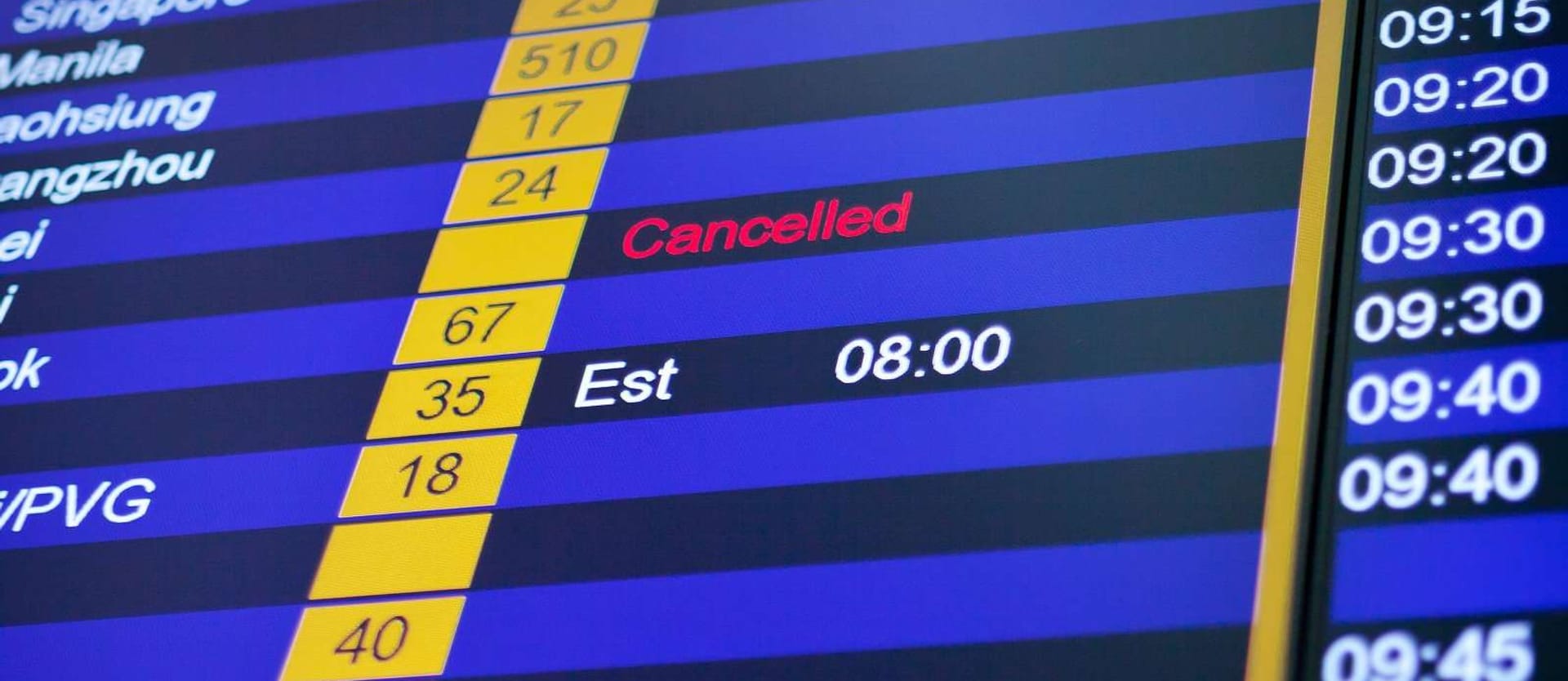
Travel disruption management can be a lifesaver when your travel plans go sideways. Ever been stuck at an airport due to a canceled flight or missed connection? Travel disruption management steps in to help you navigate these unexpected hiccups. From rebooking flights to arranging accommodations, it ensures you get back on track with minimal stress. This guide will cover 18 essential facts about travel disruption management, shedding light on how it works, why it's important, and how you can make the most of it. Whether you're a frequent flyer or an occasional traveler, knowing these facts can make your journeys smoother and more enjoyable.
Key Takeaways:
- Travel disruption management involves dedicated teams, advanced technology, and effective communication to handle issues like weather conditions, technical issues, and air traffic control, ensuring passenger safety and comfort.
- The future of travel disruption management looks promising with the use of artificial intelligence, blockchain technology, and sustainable practices to predict and minimize disruptions, providing a smoother travel experience for passengers.
Understanding Travel Disruption Management
Travel disruption management is essential for ensuring smooth journeys. From flight delays to natural disasters, managing these disruptions can be complex. Here are some fascinating facts about how it works.
-
Airlines have dedicated teams: Many airlines employ specialized teams to handle disruptions. These teams work around the clock to ensure passengers are informed and rebooked on alternative flights.
-
Technology plays a crucial role: Advanced software helps predict potential disruptions. This allows airlines to proactively manage issues before they escalate.
-
Communication is key: Effective communication with passengers is vital. Airlines use multiple channels, including emails, texts, and apps, to keep travelers updated.
Causes of Travel Disruptions
Understanding what causes travel disruptions can help in managing them better. Here are some common reasons why your travel plans might go awry.
-
Weather conditions: Severe weather, such as storms or heavy snowfall, is a leading cause of travel disruptions. Airlines often cancel or delay flights to ensure passenger safety.
-
Technical issues: Mechanical problems with aircraft can lead to delays. Regular maintenance checks are crucial to minimize these disruptions.
-
Air traffic control: Congestion in the skies can cause delays. Air traffic controllers manage the flow of aircraft to prevent accidents, sometimes leading to longer wait times.
Impact on Passengers
Travel disruptions can have significant effects on passengers. Here’s how they might affect your journey.
-
Missed connections: Delays can cause passengers to miss connecting flights. Airlines usually assist in rebooking these travelers on the next available flight.
-
Financial losses: Unexpected delays can lead to additional expenses, such as hotel stays or meals. Some travel insurance policies cover these costs.
-
Stress and anxiety: Uncertainty about travel plans can cause stress. Airlines often provide support services to help passengers cope.
Strategies for Managing Disruptions
Airlines and passengers can take steps to manage disruptions effectively. Here are some strategies that can help.
-
Flexible booking options: Many airlines offer flexible booking policies. This allows passengers to change their plans without incurring hefty fees.
-
Travel insurance: Purchasing travel insurance can provide peace of mind. It covers unexpected costs arising from disruptions.
-
Real-time updates: Staying informed about your flight status is crucial. Use airline apps or websites to get real-time updates.
Role of Airports
Airports also play a significant role in managing travel disruptions. Here’s how they contribute.
-
Emergency plans: Airports have emergency plans in place for various scenarios. These plans ensure passenger safety and minimize disruption.
-
Customer service: Airport staff are trained to assist passengers during disruptions. They provide information and help with rebooking flights.
-
Facilities: Airports offer amenities such as lounges and hotels. These facilities provide comfort to passengers facing long delays.
Future of Travel Disruption Management
The future of travel disruption management looks promising with advancements in technology. Here are some trends to watch out for.
-
Artificial intelligence: AI can predict potential disruptions and suggest solutions. This helps airlines manage issues more efficiently.
-
Blockchain technology: Blockchain can improve transparency in the travel industry. It ensures accurate tracking of passenger information and flight status.
-
Sustainable practices: Airlines are adopting sustainable practices to reduce their environmental impact. This includes using biofuels and optimizing flight routes to minimize delays.
Final Thoughts on Travel Disruption Management
Travel disruptions can throw a wrench in your plans, but knowing how to manage them makes a world of difference. Preparation is key. Always have a backup plan and stay informed about potential issues. Communication with airlines, hotels, and travel agencies can help you navigate unexpected changes. Travel insurance is a lifesaver, covering costs and providing peace of mind. Technology also plays a big role. Use apps and websites to get real-time updates and alternative routes. Flexibility is crucial. Sometimes, going with the flow is the best strategy. Lastly, keep a positive attitude. It’s easy to get frustrated, but staying calm helps you think clearly and make better decisions. By keeping these tips in mind, you’ll be better equipped to handle any travel hiccup that comes your way. Happy travels!
Frequently Asked Questions
Was this page helpful?
Our commitment to delivering trustworthy and engaging content is at the heart of what we do. Each fact on our site is contributed by real users like you, bringing a wealth of diverse insights and information. To ensure the highest standards of accuracy and reliability, our dedicated editors meticulously review each submission. This process guarantees that the facts we share are not only fascinating but also credible. Trust in our commitment to quality and authenticity as you explore and learn with us.


